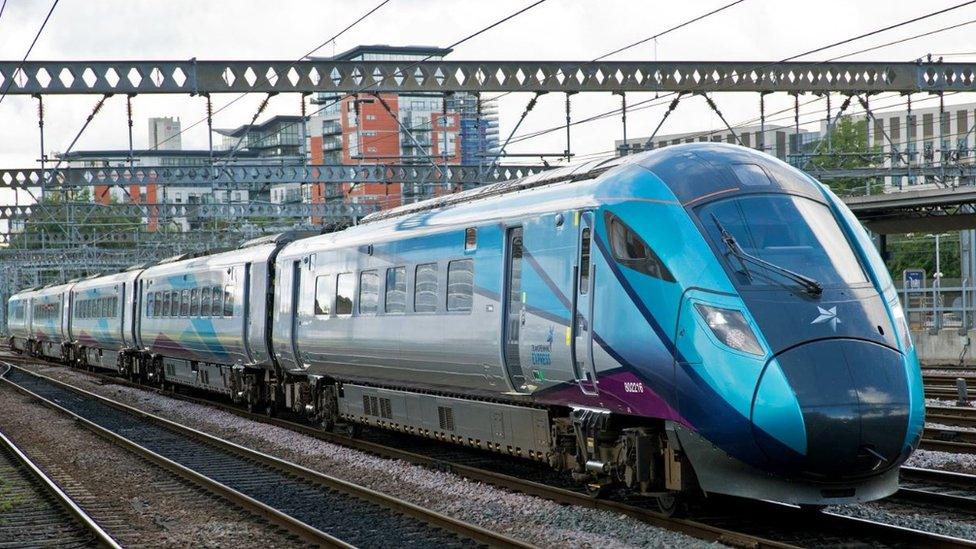TransPennine train drivers' overtime ban called off by union
- Published

TransPennine came under government control in May after months of poor performance
A ban on overtime by train drivers at TransPennine Express (TPE) which has hit rail services across the north of England has been lifted.
Drivers union Aslef had previously clashed with TPE over what it said was a "failure" to recruit enough drivers.
But TPE came under government control in May and is now run by what is known as the Operator of Last Resort (OLR).
Mick Whelan, Aslef general secretary, said the opportunity to solve the issue through the OLR had been "welcome".
'Positive relations'
Mr Whelan said union members had "always been prepared to work with the company and agree rest-day working to facilitate the recruitment and training of new drivers".
"It was regrettable we had to take the action to ban overtime working, as this kind of action is always a last resort," he said.
Mr Whelan added that he hoped Aslef would be able to continue "in the spirit of collaboration and maintain positive industrial relations with the operator" into the future.
Responding to the lifting of the overtime ban at TPE, Tracy Brabin, Labour Mayor of West Yorkshire, said the government taking control of the company had been "a reset moment, enabling us to work together to find solutions to problems created by the failing operator".
Ms Brabin added: "Today's breakthrough on rest-day working clearly shows progress. I look forward to seeing improvements for passengers in coming months."

Analysis by Spencer Stokes, business correspondent, BBC Yorkshire
The lack of a rest-day working agreement has been one of the key factors in TransPennine's dire performance over the last 18 months.
It has meant that when the company wanted to call on drivers to operate trains to cover for colleagues who were sick or undergoing training, they have not been able to do so.
That meant trains were being cancelled with alarming regularity - at one point in January nearly half the 330 daily scheduled trains were being pulled from the timetable.
Elected mayors across the North called for TPE to be nationalised, arguing that a change of management would improve industrial relations.
It came as surprise to many when the government agreed to scrap the contract with First Group and bring TPE under government control at the end of May.
But the new rest-day working agreement will not solve all the problems.
It is understood that dozens of drivers have left TPE in recent weeks, meaning the new nationalised operator may continue to struggle to run all its scheduled services.
Fundamentally, the company still needs to recruit more train drivers in what is a very competitive market.

Follow BBC Yorkshire on Facebook, external, Twitter, external and Instagram, external. Send your story ideas to yorkslincs.news@bbc.co.uk, external.
Related topics
- Published28 May 2023

- Published26 May 2023
